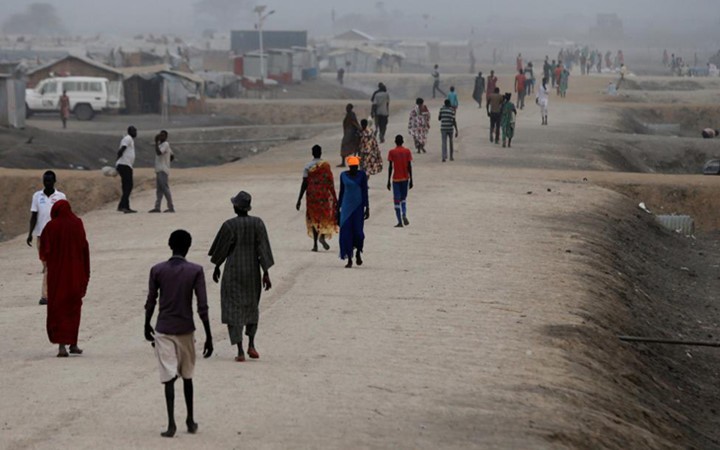(VOVworld) – Natural disasters, climate change, and conflicts are causing food insecurity in many countries.
 |
| Famine has been officially declared in South Sudan (Photo: Reuters) |
A recent report by the UN Food and Agriculture Organization (FAO) says despite abundant food reserve, the access to food remains limited in conflict zones all over the world. According to the FAO, 37 countries, including 28 countries in Africa’s Southern Sahara, need outside support to live. Famine has been officially declared in South Sudan. The prolonged civil war has destroyed the country’s agriculture and made inflation skyrocket 800% annually. The South Sudanese people are unaffordable for life’s necessities and have to live on the nature, whose edible vegetables and animals are becoming scarce.
The UN estimates that by the middle of this year, 5.5 million people in South Sudan will face hunger threat because of the worsening crisis there. South Sudanese are forced to flee to mudflats to escape from gunmen and armed looters, who have killed tens of thousands of people since the war began in 2013. 3 million people have to flee their homes due to conflicts.
Grave concerns have been reported in other countries like Nigeria, Somalia, Yemen, Afghanistan, Iraq, and Syria. Last week, the UN called for an emergency aid package of 4.4 billion USD to prevent a humanitarian crisis in Africa. The world’s wheat output this year is forecast to fall by 1.8% because of a predicted 20% output plunge in the US.
The world has seen progress in hunger eradiation over the past 30 years. But the current food production fails to match the increase of population which will number 10 billion people by 2050. If things don’t improve, more than 650 million (8% of the world population) may suffer hunger by 2030. Countries are urged to work harder to achieve the goal of sustainable development and hunger eradication by 2030.